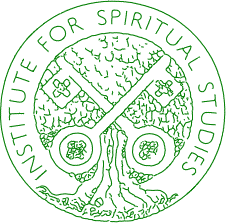|
|
The Environmental Crisis and its Challenge to the Church's Catholicity
The world currently faces the twin challenges of economic and environmental crisis. While the former captures the undivided attention of politicians and media alike, the latter languishes in a mire of political indecisiveness. The paradox is that there is only one crisis, a crisis of the human vocation, of which the economy and the environment are two presenting faces.
In the midst of this crisis, where and what is the voice of the Church? In this seminar, Bishop George Browning argues that Christianity (the Church) cannot claim to have a voice in the way forward until it recognises that it has been a part of the problem. Western culture, dominated by the neoclassical economic system is all pervasive, its outcomes affect all countries even those that do not embrace it. The individualism that undergirds capitalism has roots in Christianity, especially in the Reformation.
The paper will argue that while redemption theology has always been a dominant force in Christianity, since the Reformation it has moved an effective creation theology aside. The argument is that unless Christianity can recover a fulsome creation theology which can speak to and inform redemption theology, there is little chance that Christianity, in the West, will have anything significant to contribute in the 21st Century public arena. An arena where sustainable life and life style can no longer be taken for granted.
Bishop Browning will be joined in this public forum by three creative theologians working directly in this area, Kate Rigby, Deborah Guess, and Anne Elvey.
Kate Rigby's paper is entitled 'Creation and Catastrophe: An Ecotheological Challenge to the Concept of "Natural Disaster"'
- Summary: Since the late 18th century, events such as floods, droughts, cyclones, earthquakes and volcanic eruptions have generally been classed together under the modern concept of "natural disaster". Although insurance companies still refer to the destruction that such events cause to private property as "acts of God", only fundamentalists and biblical literalists are likely to actually believe that these are instances of punitive divine intervention. Increasingly, however, weather-related disasters are no longer purely "natural", and to classify them as such is to fail to recognize human agency as one element in their causation and course. In this paper, Kate Rigby considers how the ecotheological understanding of "nature" as "creation" might contribute to challenging this problematic modern concept, by restoring moral and spiritual significance to the nonhuman world while also acknowledging human responsibility for its potentially catastrophic disruption.
Deborah Guess intends to talk on 'The limitation of self: kenotic Christology and climate change.'
- Summary: Creation is an act of self-emptying or self-limitation by God which confers an inherent sacramental value on the universe and implies a critique of ecological degradation. The liberating, healing and sharing life of Jesus Christ, culminating in his sacrificial death, not only imitates and parallels God's self-limiting act of creation but, in an era of climate change, also models a way of living by which Western people might resist the impetus of growth and consumerism through developing our own practices of self-limitation.
Anne Elvey will to talk on the topic: 'Exploring neighbour love ecologically.'
- Summary: Neighbour love as expressed in both the Hebrew Bible and the Gospels has sometimes been extended from humans to other creatures. Exploring neighbour love ecologically, however, takes us beyond a simple extension of an inter-human ethics to ask questions about the dynamics of neighbour love. How does creation support neighbour love? How might neighbour love offer a dynamic of relating that opens up possibilities of living creatively (i.e. as part of a creation that is more than human)?
| Date |
Saturday 11 August
|
| Time |
9.30 am – 12.30 pm
|
| Venue |
St Peter's Hall, Eastern Hill
|
| Cost |
$15 (concession: $12)
|
| Speakers |
Bishop George Browning
Bishop Browning is Convener of the Anglican Communion Environment Network. He has been at different times Vice Principal of St John's Theological College Morpeth, Regional Bishop in the Diocese of Brisbane, Principal of St Francis College Brisbane, Bishop of Canberra and Goulburn and Chair of St Mark's Theological College Canberra.
|
| Kate Rigby
Kate is an Associate Professor in Comparative Literature at Monash University and a Fellow of the Australian Academy of the Humanities, and her research is focused on ecophilosophical studies in literature and religion
|
| Deborah Guess
Deborah is in the final stages of a PhD with the Melbourne College of Divinity on the topic of ecological theology and the Incarnation.
|
| Anne Elvey
Anne is an adjunct research fellow in School of English, Communication and Performance Studies at Monash University and an honorary research associate of Melbourne College of Divinity. She teaches biblical studies and ecological theology online as an associate teacher of United Faculty of Theology.
|
Previous |
Index |
Next
Authorized by the Vicar
(vicar@stpeters.org.au)
and the Institute for Spiritual Studies
Maintained by the Editor
(editor@stpeters.org.au)
© 2012 The Institute for Spiritual Studies
|
